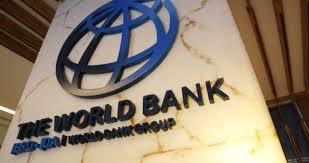The World Bank has alerted world leaders on the likely negative implications of rising commodity prices for the general price levels and economic projection in their countries.
In a report it released on Thursday, the multilateral financial institution, stated that energy and other commodity prices were projected to become significant deflationary factors in the forthcoming years
It cautioned that this trend may pose challenges for central banks aiming to implement interest rate reductions, despite the fact that substantial decline in commodity prices observed over the past two years had stabilized.
The development finance institution attributed the observed stabilization to tightening supplies due to geopolitical tensions and increased demand for industrial metals and those utilized in the energy transition.
The Financial Times in its report indicated the bank noted that between mid-2022 and mid-2023, global commodity prices experienced a notable decrease of 40 per cent, impacting commodities such as oil, gas, and wheat, following which global inflation saw a reduction of approximately 2 percentage points during this period, according to the findings of the bank
The World Bank’s index however, reflected that over the past year, prices had plateaued, thereby putting an end to this deflationary pressure.
Commenting on the latest report’s findings, World Bank Group’s Chief Economist and Senior Vice-President, Indermit Gill, said: “Global inflation remains undefeated. A key force for disinflation — falling commodity prices — has essentially hit a wall. That means interest rates could remain higher than currently expected this year and next.
“The world is at a vulnerable moment: a major energy shock could undermine much of the progress in reducing inflation over the past two years”, he added.
On its commodity prices projections this year and next year, the bank forecasted that commodity prices would fall as little as 3% in 2024 and 4% in 2025, adding that this will still leave prices about 38% higher than they were on average between 2015 and the start of the coronavirus pandemic in 2020.
According to the bank, his slowdown in price falls will do little to quell above-target inflation and create a problem for central banks wanting to bring down interest rates.
The Financial Times quoted the World Bank Group’s deputy chief economist, Ayhan Kose, as saying that “the big deal was that commodity prices were staying high while global growth slowed.”
The economist pointed out that divergence marked the start of “a new era”, noting that the last time this happened was in the wake of the 2008 global financial crisis.
The World Bank’s forecast indicated that while most commodity prices are still set to come down at a slower pace, the copper rate would rise as the energy transition spurs demand for the metal, which is essential for manufacturing electric cars and upgrading the electricity grid.
Khose further clarified that double-digit growth in global energy investment would bring “additional pressure on the demand side, keeping prices higher.”






